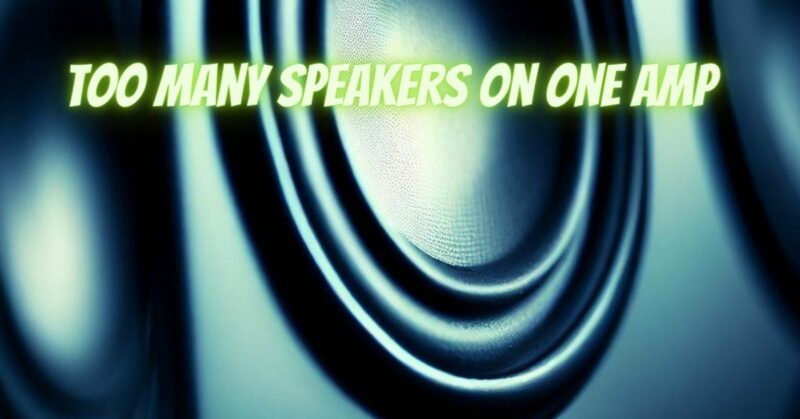Speakers are the heart and soul of any audio system, translating electrical signals into audible sound waves. When it comes to setting up speakers, it’s essential to understand the limitations and consequences of connecting too many speakers to a single amplifier. In this article, we will explore the potential pitfalls and issues that arise when you overload an amplifier with too many speakers.
The Importance of Matching Speakers and Amplifiers
Before delving into the problems of connecting too many speakers, it’s crucial to emphasize the importance of matching speakers and amplifiers appropriately. Each amplifier is designed to handle a specific load, usually measured in ohms (Ω), and delivers a specific amount of power measured in watts (W). Speakers also have impedance ratings (ohms) that should be compatible with the amplifier’s output.
The Problems of Overloading an Amplifier with Too Many Speakers:
- Reduced Sound Quality: One of the most immediate consequences of connecting too many speakers to a single amplifier is a reduction in sound quality. An amplifier’s power is distributed among the speakers, which can result in reduced volume and distorted sound.
- Potential Overheating: When an amplifier is pushed beyond its intended capacity, it may overheat. Overheating can lead to damage to the amplifier’s components, reduced lifespan, and even pose a fire hazard.
- Increased Risk of Damage: Speakers are designed to handle a specific amount of power. If too many speakers are connected to a single amplifier, it’s possible to exceed the amplifier’s output capacity, leading to damage to the speakers themselves. This can result in blown speakers or damaged voice coils.
- Imbalance in Sound: If speakers have different sensitivities or impedance ratings, connecting them to a single amplifier can lead to an imbalance in sound. Some speakers may be louder than others, causing an uneven listening experience.
- Safety Concerns: Overloading an amplifier can create safety hazards. Excessive power draw from an amplifier can trip circuit breakers, potentially leading to electrical fires or other safety issues.
How to Avoid Overloading Your Amplifier:
- Check Specifications: Always check the specifications of your amplifier and speakers. Ensure that the amplifier can handle the total impedance of the connected speakers and that the speakers can handle the amplifier’s power output.
- Use a Speaker Selector or Distribution System: If you need to connect multiple speakers to one amplifier, consider using a speaker selector or distribution system designed for this purpose. These devices can help distribute power evenly and prevent overload.
- Calculate Impedance: Calculate the total impedance of the speakers in your setup. If you’re connecting speakers in parallel, the total impedance decreases. In series, it increases. Ensure it remains within the amplifier’s specified range.
- Consult an Expert: If you’re uncertain about how to connect your speakers, seek advice from a professional audio technician or consultant who can help you design a proper speaker setup.
Connecting too many speakers to a single amplifier can lead to a range of problems, including reduced sound quality, overheating, speaker damage, and safety hazards. To avoid these issues, it’s essential to match speakers and amplifiers correctly, understand the amplifier’s capacity, and consider using a speaker selector or distribution system when necessary. By taking these precautions, you can enjoy a safe and high-quality audio experience without overloading your amplifier.


